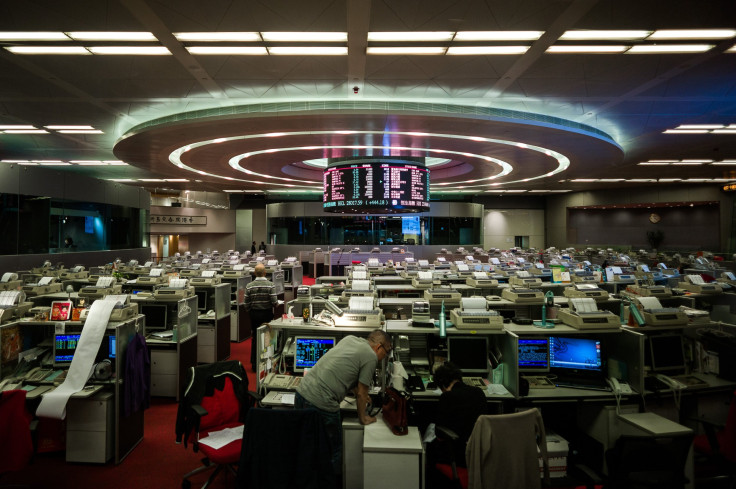Asian Markets Dip On Weak Data From Japan And China, And Negative Sentiment On Wall Street; Most Indexes End Down

Update as of 4:30 a.m. EDT: Asian markets failed to recover from losses suffered earlier in the day, weighed down by a range of concerns triggered by weak data from the manufacturing sectors in Japan and China, as well as negativity on U.S. stock indexes in the previous day's trade.
China's Shanghai Composite Index ended the day down 1.39 percent while the Shenzhen Component Index was down 1.84 percent. The country's Nasdaq-style ChiNext index fell 1.57 percent. Hong Kong's Hang Seng index was down 2.57 percent while Singapore's Straits Times Index fell 1.27 percent.
In Japan, the Nikkei 225 ended the day down over 2.51 percent while Australia's S&P ASX 200 was down 2.42 percent. South Korea's Kospi Composite bucked the trend, ending the day in positive territory, up 1.44 percent. In India, the benchmark S&P BSE Sensex was trading down 1.25 percent in late-afternoon trading.
Original story:
Asian markets fell in early trading Thursday as investors digested unflattering data from China and Japan that raised concerns about the strength of two of Asia's strongest economies.
China's main Shanghai Composite Index, was down almost 2 percent in early trading, but managed to prune back its losses by mid-morning, to around 0.96 percent by the end of the morning session. Hong Kong's Hang Seng index dropped 2.83 percent and Japan's Nikkei index was down 2.85 percent in morning trading.
The mid-morning drops are in contrast to a strong close yesterday, when sentiment was buoyed by the announcement of a proposed series of economic reforms by the Chinese government, which analysts said would help boost the country’s slowing economy.
China's consumer price index (CPI) rose 2 percent in August from the year before, beating expectations for a 1.8 percent gain and up from 1.6 percent in July, data published Thursday by the country's National Bureau of Statistics revealed.
In addition, China's producer price index (PPI) -- a gauge of factory-gate prices -- declined 5.9 percent, compared with the consensus target of a 5.4 percent drop and after a 5.4 percent decline in the previous month. This marks the forty-second consecutive month of declines, according to Money Control.
"PPI is related to what's happening in the real economy because it affects the revenue and profit of the corporate sector, which in turn will affect fixed investment and overall growth," Grace Ng, senior China economist at JPMorgan Chase & Co., told CNBC. "So from that perspective, it is still very much of a concern with PPI stuck in negative territory."
The rise in consumer inflation suggests that demand in the country is still strong, but evidently was not enough to offset market concerns.
Negative sentiment on Wall Street, where stocks ended down more than 1 percent overnight, also helped push Asian shares into negative territory.
In Japan, core machinery orders, which are regarded as an indicator of capital spending in the coming six to nine months, fell 3.6 percent in July. That was much worse than a 3.7 percent increase expected by economists, and followed a 7.9 percent month-on-month decline in June, Reuters reported, and prompted investor concerns that weak levels of investment could further erode already slow growth in Asia.
The Nikkei's slump follow its surge yesterday, when it gained almost 8 percent, in the biggest one-day gain since October 2008.
In India, the benchmark S&P BSE Sensex fell 1.5 percent in early trading Thursday, as concerns grew over the outlook for an interest rate hike by the U.S. Federal Reserve, according to Mint, a local business publication.
© Copyright IBTimes 2024. All rights reserved.






















